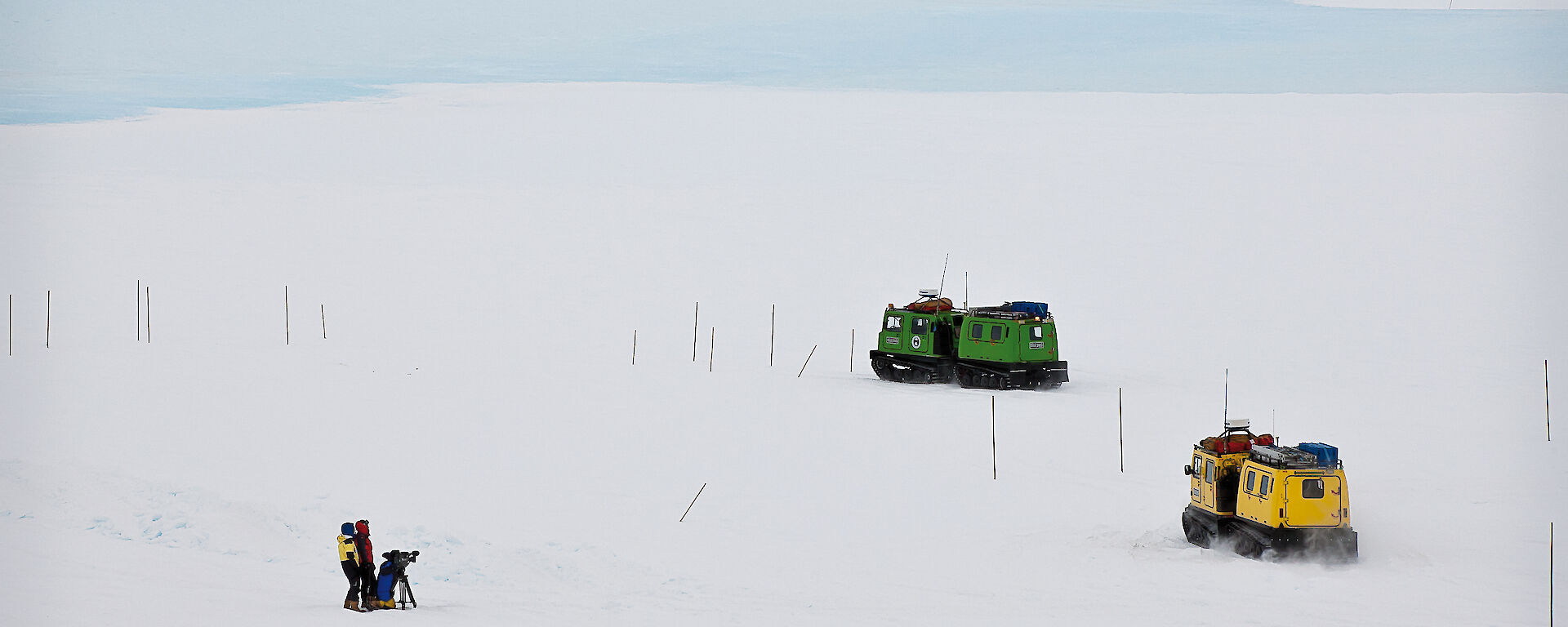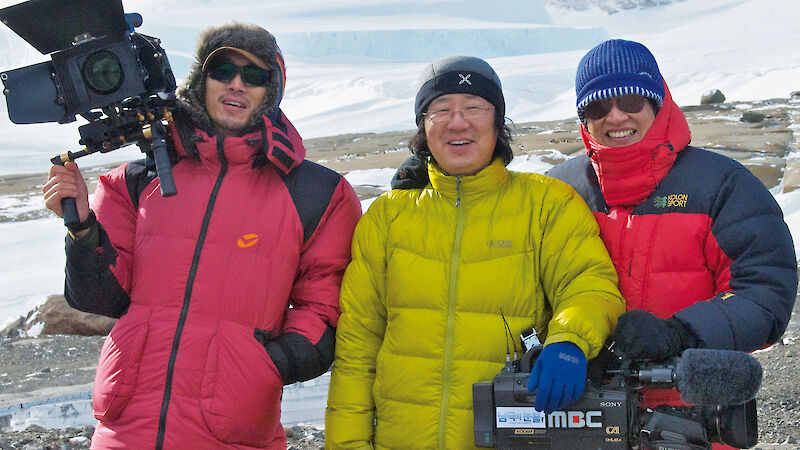A South Korean film crew wintering at Mawson station this year are no strangers to living in remote and hostile environments.
The three-man team of producer Kim Jin-Man, assistant producer Bang Bo-Hyun and cameraman Song In-Hyuk, have already shot documentaries in isolated areas of the Amazon and Himalayas.
Now they are aiming to capture the beauty and fragility of the Antarctic continent in their new documentary Tears of Antarctica.
‘This is the last in our series of environmental documentaries, where we explore unique environments and how humans and animals adapt to challenging surroundings,’ Mr Kim Jin-Man said.
The film crew is one of five Korean crews from Munwha Broadcasting Corporation (MBC) filming in Antarctica this year. MBC is one of the country’s major television and radio networks, with 19 regional stations, 10 subsidiaries and over 4000 employees.
Over the next 12 months the five MBC film crews will be embedded at stations across the continent including at Japan’s Syowa base, Germany’s Neumayer base, the Argentinean Esperanza base and on the subantarctic South Georgia and King George islands.
The focus of the Mawson-based crew will be the emperor penguin colony at Auster Rookery. Series Producer Kim Jin-Man said the emperor penguins have an incredible story to tell as they symbolise the struggle for survival that all creatures face on the frozen continent.
The film crew plan to spend the majority of the winter months based at tiny Macey Hut, about 51km east of Mawson station, near the emperor penguin rookery. The crew will return to Mawson every month to get supplies and have much needed showers.
Both Kim and cameraman Song have worked in the industry for 15 years, and have experienced a number of challenging work conditions. For example, they spent almost six months deep in the Amazon rainforest filming a remote tribe that has rarely had contact with the outside world. Capturing the life of the Zoe tribe involved spending days in open canoes travelling up the Amazon, dealing with swarms of mosquitoes and camping in basic huts in damp conditions.
‘They were all naked and still used traditional hunting methods to sustain their families. They have never been in contact with modern society before. It was a fascinating insight into a disappearing culture,’ Mr Kim said.
Two years ago Song spent 200 days on Mount Everest filming a story about two Korean University students who perished in their attempts to climb the mountain. Song’s film followed the friends of the deceased as they searched and found the bodies of their loved ones in order to provide a traditional burial for them.Preparation and planning for the Korean crew’s Antarctic trip has been intense. Once in Antarctica there are no options for fixing or buying new equipment in the event of an accident. They have packed 500kg of equipment, including sound recording gear, a 3-D camera and an underwater camera.
‘We are hoping to be able to find a hole in the ice where the emperor penguins are accessing the ocean and put an underwater camera there to capture the action,’ Mr Bo said.
‘The five programs series, including the other teams based across the continent, will cost MBC about $3 million to film and produce, but the end result will be spectacular.’
The three men, who hail from the 10 million-strong city of Seoul, are looking forward to experiencing the isolated community life, in the company of just 19 wintering expeditioners at Mawson station.
‘It’s an amazing opportunity to not only live in a remote environment, but also immerse yourself in a different culture,” Mr Bo said.
Kim and Song will return to Korea in November, while Bo will remain at Mawson until February undertaking post production work. The documentary series will air in Korea in December and a feature-length film will be made for worldwide distribution.
NISHA HARRIS
Corporate Communications, Australian Antarctic Division



